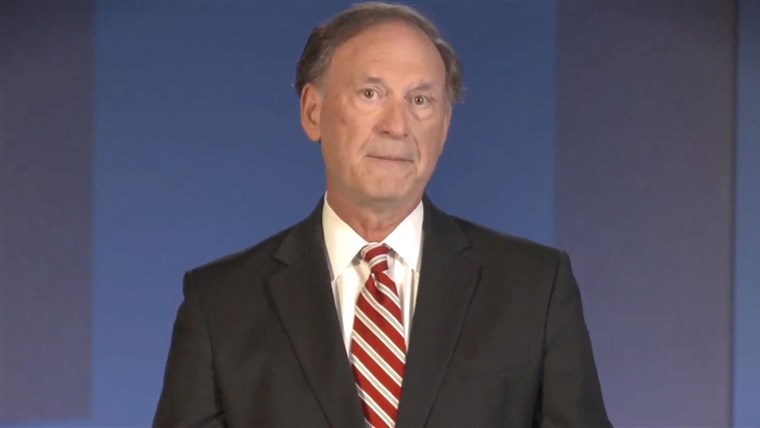The Annual Internal Scraping of the Constitution Begins

The Supreme Court is back in session, which means we get to be super excited at another round of six rich reactionaries deciding which parts of the nation they want to destroy this year.
Who gets to govern the United States? The Constitution begins with the immortal words “We the People,” but the reality is more complicated than that. We the people have jobs and mortgages and families to worry about. So the American people delegate that responsibility to our elected officials. They, in turn, hire and fire the people who test our drinking water for pollutants, evaluate the safety of new drugs, protect our coasts from overfishing, and much more. If Americans are unsatisfied with the way their public servants are managing their assigned affairs, they can hire and fire those elected officials every few years.
The Supreme Court’s upcoming term threatens to upend that democratic system’s basic contours—and make it harder for we, the people, to live our lives. The six conservative justices on the court aren’t threatening to abolish Congress or seize control of the White House, of course. But their rulings in a handful of upcoming cases this term could subordinate the two elected branches of government to the judiciary for the benefit of wealthy Americans and corporate special interests—and to the detriment of everyone else.
On Tuesday, the justices will hear oral arguments in Consumer Financial Protection Bureau v. Community Financial Services Association of America. The case is a challenge to the funding mechanism that Congress set up for the CFPB when it created the consumer-finance watchdog agency as part of the Dodd-Frank financial reforms in 2011. Unlike some other federal agencies that receive annual appropriations from lawmakers, Congress allows the CFPB to draw its funding directly from an account in the Federal Reserve System.
The CFPB published a rule in 2017 that limited the number of automated withdrawal requests that lenders could make to their customers’ bank accounts, which the agency concluded could harm lower-income customers by overdrafting their bank accounts or even forcing their closure before they could make the payments. A trade association for payday lenders sued the agency to block the rule by arguing, among other things, that the CFPB’s rulemaking process was unconstitutional because its funding structure violated the Constitution’s appropriations clause.
While many agencies are funded by annual appropriations from Congress, some are not. Some early agencies, like the Post Office and the Patent Office, funded their budgets by fees levied on customers and applicants. That practice persists into the present day: The Federal Deposit Insurance Corporation, for example, is funded entirely by deposit insurance premiums paid by banks. Some other financial regulators like the Federal Reserve Board of Governors are funded through a similar standing appropriation from other sources. Taken altogether, Congress has allowed federal agencies to receive funding from a variety of different sources, and it retains the power to change those arrangements whenever it sees fit.
The Fifth Circuit Court of Appeals disagreed. Judge Cory Wilson, writing for a unanimous three-judge panel, described the funding mechanism as a violation of the appropriations clause as well as a blow to the separation of powers. “Even among self-funded agencies, the Bureau is unique,” he claimed, quoting from precedent. “The Bureau’s perpetual self-directed, double-insulated funding structure goes a significant step further than that enjoyed by the other agencies on offer. And none of the agencies cited above ‘wields enforcement or regulatory authority remotely comparable to the authority the [Bureau] may exercise throughout the economy.’”
Wilson’s opinion echoed the widespread belief in the conservative legal movement that the CFPB is a dangerous threat to liberty and must be either reined in or destroyed. The Supreme Court’s conservative majority, which appears similarly skeptical of the consumer-finance watchdog, previously dismantled the statutory for-cause protections for the CFPB’s director in 2018. In one notable exchange on Capitol Hill, a Republican lawmaker from Pennsylvania told CFPB Director Rohit Chopra during a congressional hearing earlier this year that the financial industry was not happy with the agency’s work and urged her to “be responsive to the clientele that you’re supposed to be helping” when adopting new policies and regulations.
“Just to be clear, the clientele of the CFPB is not banks,” Chopra responded. “The clientele is the public.”
Government by the Fifth Circuit is going to be so much fun.


